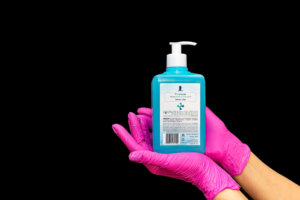Are you considering a career in nursing? If so, you’ll likely need to take an entrance exam before being accepted into a nursing program. The two most common exams are the TEAS exam and the Kaplan Nursing Entrance Exam.
While both tests assess your knowledge and skills in math, science, reading, and English, they have notable differences. So, which exam is right for you?
In this article, we’ll provide an overview of both exams, highlighting their similarities and differences. We’ll also offer tips to help you prepare for either exam.
By the end of this article, you’ll have a better understanding of which exam may be the best fit for you based on your strengths, weaknesses, and nursing program requirements.
Key Takeaways
- TEAS and Kaplan Nursing Entrance Exam are two common entrance exams for nursing programs that assess knowledge and skills in math, science, reading, and English.
- TEAS places more emphasis on knowledge in anatomy and physiology, biology, chemistry, physics, and earth science, while Kaplan places more emphasis on critical thinking, reasoning, and problem-solving skills.
- The exams differ in format, scoring criteria, and cost, and it is important to research and consider personal strengths and weaknesses, career goals, and specific requirements of nursing schools before deciding which exam to take.
- Thorough exam preparation is necessary for success, and strategies for overcoming weaknesses may include seeking extra help or resources, setting priorities for career goals, and creating a roadmap for success in the healthcare field.
Understanding the TEAS Exam
If you’re considering taking the TEAS exam, you’ll want to know that it measures your knowledge in reading, math, science, and English language usage, so it’s important to review all of those subjects thoroughly before test day.
The test format consists of 170 multiple-choice questions, divided into four sections: Reading (53 questions), Math (36 questions), Science (53 questions), and English and Language Usage (28 questions). You’ll have a total of 209 minutes to complete the exam, and you’ll be given breaks in between each section.
When it comes to the content covered on the TEAS exam, you can expect to see questions related to anatomy and physiology, biology, chemistry, physics, and earth science. You’ll also need to have a solid understanding of basic math concepts such as fractions, decimals, ratios, and percentages.
In addition, the English and Language Usage section will test your knowledge of grammar, punctuation, and sentence structure. It’s important to note that the TEAS exam is designed to assess your readiness for nursing school, so the questions will be tailored to that specific field.
Be sure to study all the topics thoroughly to ensure you’re well-prepared for the exam.
Understanding the Kaplan Nursing Entrance Exam
You may be interested in knowing more about the Kaplan Nursing Entrance Exam, which is a popular option for nursing school applicants.
The exam format for the Kaplan Nursing Entrance Exam is similar to the TEAS exam, as it’s a multiple-choice test that assesses a student’s knowledge in various subjects such as math, science, reading, and writing.
However, the Kaplan Nursing Entrance Exam also includes a section on critical thinking that requires students to analyze and evaluate information.
The scoring criteria for the Kaplan Nursing Entrance Exam is also similar to the TEAS exam, as students are scored based on the number of correct answers they get on the exam.
However, the scoring for the critical thinking section is usually given more weight than the other sections.
It’s important to note that each nursing school may have different requirements for the minimum scores needed to be accepted into their program, so it’s important to research the specific requirements for the schools you’re interested in applying to.
Differences Between the TEAS and Kaplan Exams
One way to distinguish between the TEAS and Kaplan exams is by examining their unique features and test-taking strategies. Here are some differences to consider:
-
Exam format: The TEAS exam is a computer-based test with 170 multiple-choice questions that must be completed in 209 minutes. The Kaplan Nursing Entrance Exam is also computer-based and consists of 91 questions that must be completed in 165 minutes. However, the Kaplan exam includes additional subtests, such as reading comprehension and math skills.
-
Content focus: The TEAS exam focuses on math, science, reading, and English language usage. The Kaplan exam also covers these subjects but places a greater emphasis on critical thinking, reasoning, and problem-solving skills.
-
Scoring: The TEAS exam is scored on a scale of 0 to 100, and the passing score varies depending on the institution. The Kaplan exam is scored on a scale of 0 to 1000, with a passing score of 65% or higher.
-
Exam cost: The TEAS exam typically costs around $100, while the Kaplan exam costs around $150.
-
Test preparation: The TEAS exam offers study materials and practice tests through the ATI website and other resources. The Kaplan exam offers study materials and practice tests through the Kaplan website and other resources.
By understanding these differences, you can make an informed decision about which exam is right for you. Consider your strengths and weaknesses in the content areas, your preferred testing format, and your budget for exam fees and study materials.
Which Exam is Right for You?
So, you’re wondering which nursing entrance exam is right for you? Well, it’s important to consider your nursing school requirements, personal strengths and weaknesses, and career goals.
Depending on these factors, you may find that the TEAS or Kaplan exam is a better fit for you.
Let’s dive into each of these points to help you make the best decision for your nursing career.
Nursing school requirements
To meet nursing school prerequisites and admission requirements, you’ll need to pass either the TEAS exam or the Kaplan Nursing Entrance Exam. These exams assess your knowledge of basic nursing concepts and skills, such as anatomy and physiology, pharmacology, and patient care.
When preparing for either exam, it’s important to keep in mind the specific requirements of the nursing schools you’re applying to. Some schools may require a higher score on one exam over the other, or may have additional prerequisites such as coursework in microbiology or psychology.
Make sure to research the requirements of each school thoroughly and plan accordingly.
Personal strengths and weaknesses
Discovering your personal strengths and weaknesses can be a challenging but empowering process for aspiring nurses. It’s important to identify areas where you may struggle, as well as areas where you excel. This knowledge can be used to create a plan for success in nursing school and beyond. One way to identify your strengths and weaknesses is to reflect on past experiences and feedback from others. Consider what tasks or subjects you have found easy or difficult in the past, and ask for constructive criticism from friends, family, or coworkers.
Once you have identified your weaknesses, it’s important to develop strategies to overcome them. This may involve seeking extra help or resources, such as tutoring or study groups. It’s also important to leverage your strengths and find ways to use them to your advantage. For example, if you excel at communication, you may be able to help your classmates with group projects or presentations. By identifying your personal strengths and weaknesses, you can create a plan for success and take control of your nursing education.
| Strengths | Weaknesses |
|---|---|
| Compassionate | Disorganized |
| Detail-oriented | Public speaking |
| Empathetic | Time management |
Career goals
Now that you’ve identified your personal strengths and weaknesses, it’s time to focus on your career goals. Whether you’re pursuing a career in nursing or other healthcare fields, it’s important to have a clear understanding of where you want to go.
When setting priorities for your career goals, it’s crucial to consider the following:
-
What field of healthcare do you want to work in? Are you interested in pediatrics, geriatrics, emergency medicine, or another specialization?
-
What type of work environment do you prefer? Do you want to work in a hospital, clinic, nursing home, or other setting?
-
What level of education do you want to achieve? Do you plan on pursuing a bachelor’s or master’s degree in nursing or another healthcare field?
-
What are your long-term career aspirations? Do you want to become a nurse practitioner, nurse educator, or healthcare administrator?
Exploring options is key when determining the best path to achieve your career goals. Research different healthcare fields, job descriptions, and education requirements to gain insight into what might be the best fit for you. By setting priorities and exploring options, you can create a roadmap to achieve your career aspirations and succeed in the healthcare field.
Tips for Preparing for the TEAS or Kaplan Exam
Are you preparing for the TEAS or Kaplan nursing entrance exam? Here are some key considerations to keep in mind as you prepare for the test.
First, make sure you’re familiar with the format and content of the exam.
Second, establish a study schedule that works for you and stick to it.
Finally, don’t forget to take care of yourself by getting enough sleep and staying hydrated.
With these tips in mind, you’ll be well on your way to success on the exam.
Key considerations
When deciding between the TEAS exam and the Kaplan Nursing Entrance Exam, you should take into account several key considerations. These include the test format, scoring criteria, cost, availability, and your personal strengths and weaknesses. Here are three important things to keep in mind:
-
Test format: The TEAS exam is a multiple-choice test that covers four subject areas: reading, math, science, and English language usage. The Kaplan Nursing Entrance Exam, on the other hand, consists of 91 multiple-choice questions, as well as a writing sample and a critical thinking section. You should choose the exam that aligns with your learning style and the skills you want to showcase.
-
Scoring criteria: Both exams have different scoring criteria, which can affect your chances of getting into nursing school. The TEAS exam is scored on a scale of 0-100%, while the Kaplan Nursing Entrance Exam is scored on a scale of 0-160. You should research the scoring criteria for each exam and determine which one is a better fit for you.
-
Cost and availability: The TEAS exam costs $115, while the Kaplan Nursing Entrance Exam costs $150. It’s important to consider your budget and the availability of each exam in your area. Some nursing schools may only accept one exam over the other, so be sure to check with your school of choice before making a decision.
Final thoughts and recommendations
Takeaway tip: Consider your learning style, budget, and the specific requirements of your nursing school before deciding which exam to take.
Both the TEAS and Kaplan nursing entrance exams are challenging and require thorough exam preparation. However, the decision-making process ultimately comes down to your personal preferences and needs.
If you’re someone who prefers a more structured approach to studying, then the TEAS exam may be the better choice for you. On the other hand, if you prefer a more personalized approach and have a larger budget, then the Kaplan nursing entrance exam may be a better fit.
Regardless of which exam you choose, it’s important to give yourself enough time to prepare and familiarize yourself with the format and content of the exam. With the right amount of exam preparation, you can increase your chances of success and ultimately achieve your goal of becoming a nurse.
Frequently Asked Questions
What is the cost of the TEAS and Kaplan Nursing Entrance Exam?
If you’re wondering about the cost of the TEAS exam and Kaplan nursing exam fees, you’ll be glad to know that both tests are affordable.
The TEAS exam cost varies depending on the testing center, but it typically ranges from $70 to $120.
On the other hand, the Kaplan nursing entrance exam fees are around $150 to $200.
It’s important to note that these prices may change, so it’s best to check with the testing center or Kaplan directly for the most accurate information.
Nonetheless, both tests are an investment in your nursing education and future career, so it’s worth budgeting for them in advance.
How long are the TEAS and Kaplan Nursing Entrance Exam scores valid for?
When it comes to the validity of TEAS and Kaplan nursing entrance exam scores, it’s important to note that both exams have a shelf life. TEAS scores are typically valid for two years, while Kaplan nursing entrance exam scores are valid for one year.
This means that if you plan on applying to a nursing program, you’ll want to take the exam(s) within a reasonable amount of time before submitting your application.
To prepare for either exam, consider using study materials such as practice tests, flashcards, and review books. It’s also important to understand the differences in content and format between the two exams, as this can help guide your study plan and ensure you’re focusing on the right material.
Ultimately, the decision of which exam to take depends on your individual needs and the requirements of the nursing programs you’re interested in.
Are there any accommodations available for test-takers with disabilities?
If you have a disability and are planning to take a nursing entrance exam, you’ll be pleased to know that there are accommodation options available to you. Disability services are provided by the testing organizations to ensure that test-takers with disabilities are given equal opportunities to demonstrate their skills and knowledge.
These services may include extended testing time, a separate testing room, or the use of assistive technology. You should contact the testing organization in advance to request accommodations and provide documentation of your disability. It’s important to note that different testing organizations may have different procedures and documentation requirements for requesting accommodations.
Can I take the TEAS and Kaplan Nursing Entrance Exam more than once?
You can retake both the TEAS and Kaplan Nursing Entrance Exam if needed. However, there are some differences in their retaking options.
With the TEAS, you can take the exam a maximum of six times, with a wait period of 30 days between each attempt. On the other hand, the Kaplan Nursing Entrance Exam allows you to retake the exam twice within a six-month period.
It’s important to note that there are also differences in the exam format between the two tests. The TEAS is a standardized test that assesses your academic skills in reading, math, science, and English. Meanwhile, the Kaplan Nursing Entrance Exam is a computer adaptive test that measures your knowledge and critical thinking skills in nursing-related subjects.
Make sure to consider these factors when deciding which exam to take and how many times to retake it.
How long does it typically take to receive exam results?
Typical wait time for exam results can vary depending on the specific exam and testing center, but it’s usually around 2-3 weeks.
There may be exceptions, such as delays due to technical difficulties or issues with scoring. Some score delivery options may be available, such as receiving scores online or by mail.
If you don’t receive the desired score, retakes may be possible with certain limitations and fees. Preparation resources and study tips are available for both the TEAS and Kaplan Nursing Entrance Exam, including review books, practice tests, and online courses.
Test taking strategies, such as time management and identifying weak areas, can also help improve scores. It’s important to research and compare different nursing entrance exams to determine which one is the best fit for your individual needs and goals.
Conclusion
So, which exam’s right for you? It ultimately depends on what your nursing program requires and what your personal strengths and weaknesses are.
If your program specifically requires the TEAS exam, then that’s the exam you should prepare for. However, if your program allows for either exam, consider your strengths in the different subject areas and choose the exam that plays to those strengths.
No matter which exam you choose, be sure to give yourself plenty of time to prepare. Utilize study materials and resources available to you, and consider taking a practice exam to get a feel for the format and types of questions you’ll encounter.
With dedication and preparation, you can ace either the TEAS or Kaplan nursing entrance exam and be on your way to a successful nursing career.





















































































































